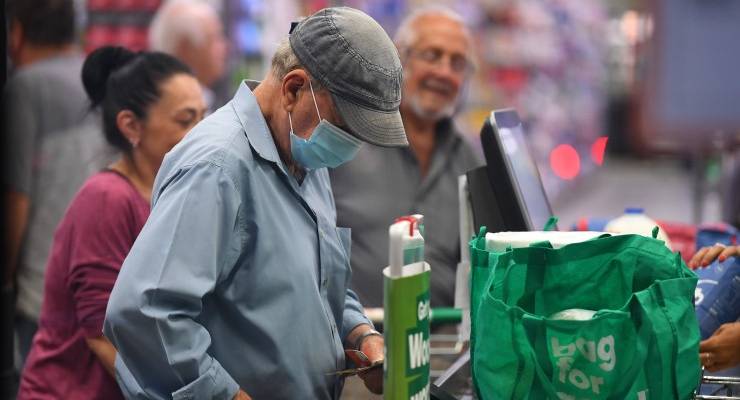
Australians are the world’s best coronavirus panic-buyers, new research shows, which is a fact I won’t be bragging about at dinner parties.
New Zealand is so close to eradicating COVID-19, while Tokyo is on alert for a second wave.
Panic buying isn’t a sport
If panic buying was a sport, Australia would have a gold medal. New research shows Australians were the quickest to stockpile goods when the pandemic hit, running shelves dry from March.
Toilet paper sales doubled, canned and dry soup sales surged by 180% and there were shortages of flour, rice and pasta.
Most of the panic buying happened before there were many COVID-19 cases in the country, with shoppers reacting to international news.
Elimination is nigh
New Zealand has only one known active coronavirus case thanks to strict lockdown measures, making it one of the few places where complete eradication of the virus appears possible.
New Zealanders were prohibited from socialising with anyone outside their own households for six weeks.
Singapore, South Korea and Hong Kong all had setbacks and cluster outbreaks in their attempts to control the virus, while Tokyo has issued a coronavirus alert just a week after a state of emergency ended. Thirty-four new cases were confirmed in the city yesterday.
Dollar bounces back
The Aussie dollar has jumped by 24% in the past 10 weeks against the US dollar, even as the world faces a recession.
The rise is largely thanks to China’s COVID-19 recovery, with iron ore prices surging thanks to increased demand from China, and supply disruptions in Brazil. Investors have also become more optimistic after months of negative predictions.
It’s not all good news — Asia faces economic instability thanks to the coronavirus, with Beijing threatening to cut back on a trade deal with Washington and Hong Kong.
Former officials from Indonesia, China and Australia have called for an urgent regional leader’s summit through the Association of Southeast Asian Nations (ASEAN).
Wage freeze showdown
NSW Premier Gladys Berejiklian’s proposal to freeze wages in the public sector has been met with staunch opposition.
Conservative backbenchers have joined Labor in blocking the freeze, which would affect hundreds of thousands of public servants, including nurses and paramedics on the frontline of the pandemic.
Paramedics have been refusing to fill out billing paperwork for patients in protest, which could cost the state between $400 and $900 per trip.
The government has said the $3 billion saved would be reinvested into job creation and infrastructure.
While healthcare workers might not get their scheduled pay rise, they can renovate their kitchens: Morrison’s almost $1 billion construction stimulus package, which is expected to provide financial assistance including direct cash grants of between $20,000 and $50,000, could prioritise those building new homes or undergoing major renovations.








I’m sick of people calling it ‘panic buying’. Yes, on that first weekend, there may have been panic (although not at 10am on the Saturday when I bought my usual 24 pack of toilet paper), but after that – after people saw new reports indicating shortages of basic items in shops – it wasn’t panic, it was prudent.